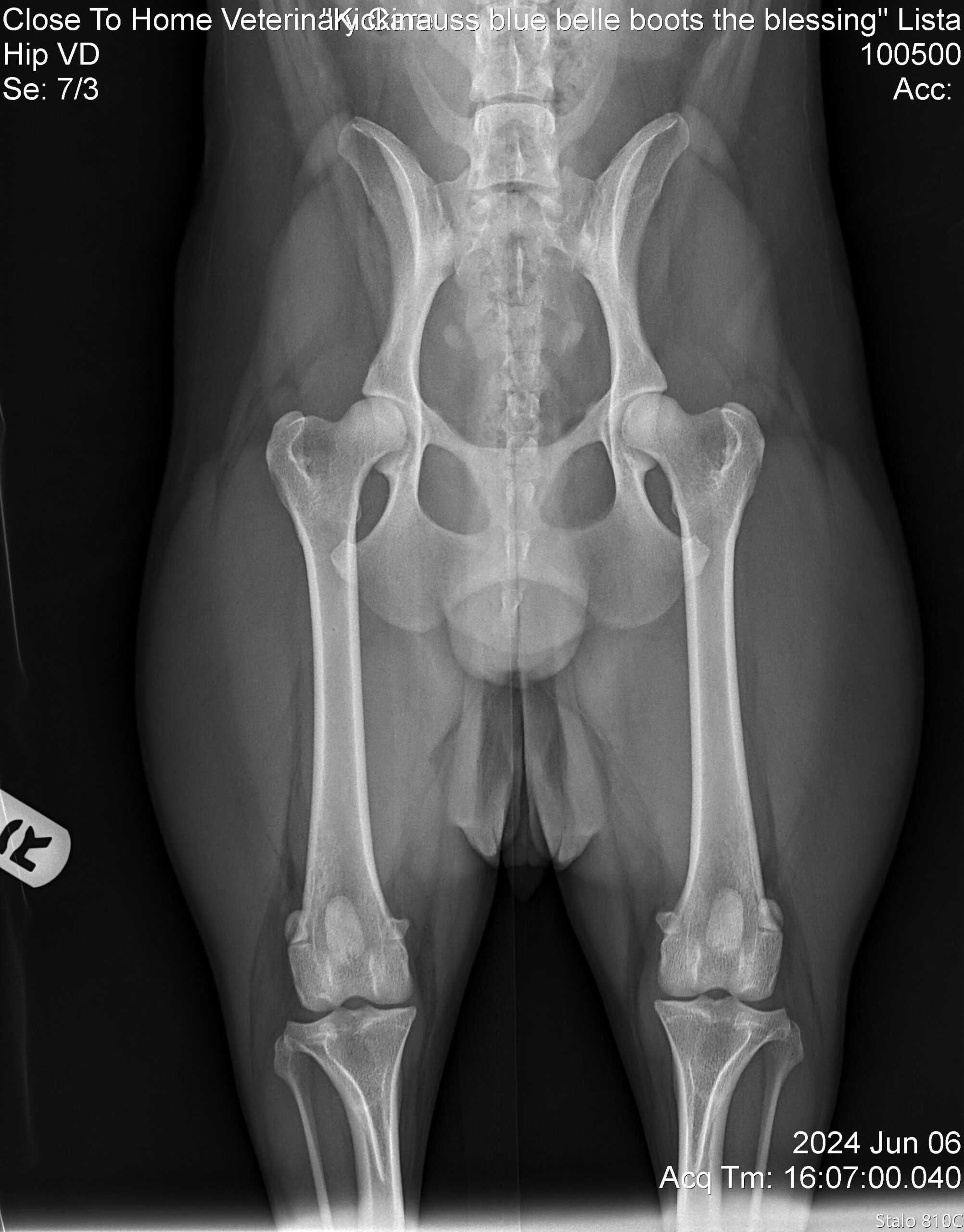Have you ever heard about Dog Hip Dysplasia?
Dog hip dysplasia is a genetic condition that affects the hip joint, where the ball and socket of the hip do not fit together properly. In dogs with hip dysplasia, the joint is loose and unstable, causing the ball to move abnormally within the socket. Over time, this abnormal movement leads to joint damage, inflammation, pain, and arthritis.
Here are some reasons why it is so important to screen your dog for Hip Dysplasia (typically done at 24 months):
1. **Early Detection and Management**: Early identification of hip dysplasia allows for timely interventions, which can slow the progression of the disease and improve the quality of life for the dog.
2. **Pain and Suffering**: Hip dysplasia can cause significant pain and mobility issues in affected dogs. Early screening helps in managing pain and discomfort, ensuring the dog lives a more comfortable and active life.
3. **Breeding Decisions**: Hip dysplasia has a genetic component. By screening dogs before breeding, breeders can make informed decisions and avoid breeding dogs with the condition, thereby reducing the incidence of hip dysplasia in future generations.
4. **Cost-Effectiveness**: Early diagnosis can lead to more cost-effective management of the condition. Preventive care and early treatment are often less expensive than managing severe cases that may require extensive surgery and long-term medication.
5. **Quality of Life**: Dogs diagnosed and managed early can maintain a better quality of life. They can remain active and enjoy daily activities, contributing to their overall well-being and happiness.
6. **Owner Education**: Screening provides valuable information to dog owners about their pet’s health. It allows them to be proactive in managing the condition and making lifestyle adjustments that can benefit their dog.
By prioritizing screening for hip dysplasia, the overall health, longevity, and well-being of dogs can be significantly improved.
Follow Hip Dysplasia Discussion on Instagram!



